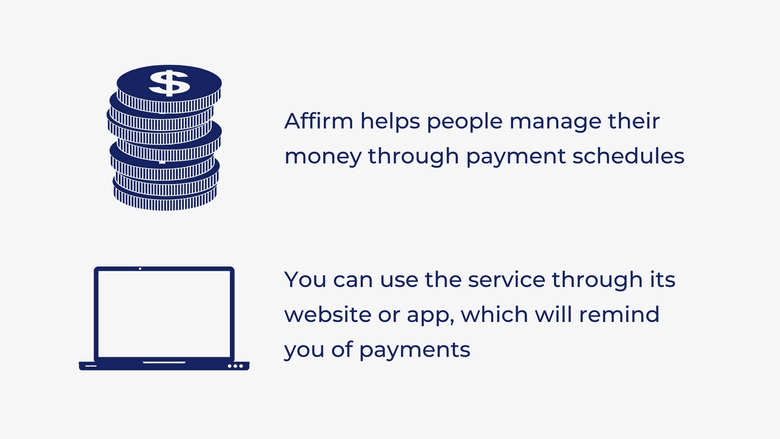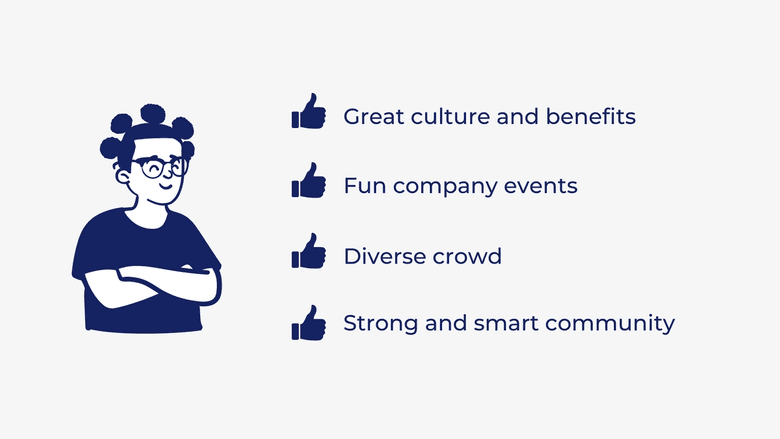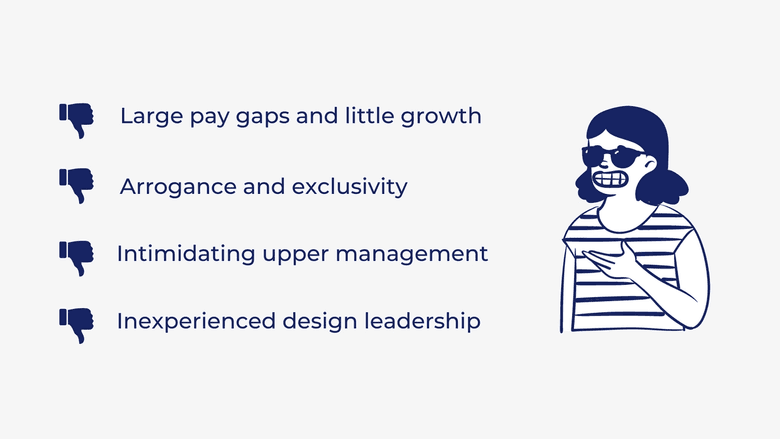Getting to know Affirm: The Good, the Bad, and the Loan
Everything you need to know about the culture, work, and teams at Affirm.
On the surface, Affirm wants to make its business about you, the customer.
The experience, the ease, and the accessibility address the needs of customers like you and me. When you visit their website, Affirm makes a point to discuss their prioritization of customers and how they’re different from credit card companies. They focus on transparency and fairness.
Affirm strives to be a safe haven for shopaholics, but what about those who work behind the loans?
Who is Affirm?

Affirm is a company dedicated to helping people manage their money through payment schedules. This allows customers to have flexibility when making purchases and causes less damage to their credit scores over a period of time. They can pay over a span of three months, or as many as eighteen months. But this also acts as a loan, which means an APR interest rate will be applied to this payment plan.
You can access Affirm through its website or through the app, which will send reminders for your monthly payments. Affirm does perform a credit check to see if you’re eligible, which won’t affect your credit score. But using Affirm itself may affect your credit score.
Affirm seeks to provide customers with a sense of security and control over their credit and debt. By showing customers all the numbers and information about their payment plan, this company strives to be an affordable and flexible option for shoppers.
The Good

Jerry Xu, an Applied Machine Learning Scientist at Affirm, posted many praises on Quora regarding the company culture. He talked about the fun company events that happen monthly and the half-yearly team and division events. Xu also mentioned the great benefits that come with being an employee at Affirm. He enjoyed the atmosphere other attitudes brought, calling them “extremely smart and funny.” He finds that he has grown through his work at Affirm, as he’s learned about finance, data science, and engineering. Additionally, Xu noted how there’s a diverse crowd at this company, which includes people with varying education and work experience.
On the same Quora thread, Trisha Kothari, who worked as a product manager/software engineer from September 2014 to June 2018, described her experience as “intense”. She found that the company’s mission was ambitious, as Affirm is attempting to create a modern banking system, which results in unexpected challenges. But Kothari saw that the quality of the team as one of the best aspects of working at this company. She described them as “incredibly smart, hardworking, down-to-earth, and caring,” noting how the sense of community is strong, healthy, and genuine.
The Not So Good

Although there are positive factors to working at Affirm, some had less glowing reviews of the company. Through anonymous reviews left on Glassdoor and Team Blind, we saw the negative side of working there.
Exclusive + Arrogant Culture
One ex full-time employee noted a large pay gap between engineers and non-engineers, a lack of growth, and misalignment of the company’s values. The former employee described Affirm’s work as “predatory,” being that the interest rates are high and they tend to target those who wouldn’t usually receive loans, which “enables borrowers.” The culture itself was also described as toxic. This review noted how fitting in was often a challenge and there tended to be exclusive attitudes within certain teams. There were even occasions where employees were let go due to mistakes they had made, but said mistakes were actually used as a scapegoat for the company itself.
Another former employee noted how a lot of decisions within the company were based on friendships rather than what works best for the business. They advised the company to “get rid of the political people who contribute no value.” A separate former employee also said that the company lacks direction and a leader to look up to.
While many of these former employees noted how good the benefits, like compensation, were while working at Affirm, that did little to conceal their dissatisfaction with the work environment. Another former employee said that the very same pride that Affirm believes is the downfall of banks exists in the company’s culture, especially among senior leaders and executives.
This culture encompasses “cronyism...arrogance...sexism...biases...and an exceptionally low to non-existent EQ,” according to another former employee.
Upper Management Challenges
The same employee who criticized the arrogance of Affirm touched on poor job matches. They said that competent product managers were placed in roles where they would fail, due to their strengths differing from the job itself. On occasion, this placement was even intentional.
The culture in upper management also breeds a somewhat-intimidating atmosphere, as questions come off as a challenge of authority. Additionally, there seems to be a disconnect with upper management and their employees. So much so, employees aren’t allowed to attend diversity meetings or expense systems training.
“Wake up and address employees with respect as individuals,” said a former employee under a review as ‘advice to management’.
Not only was there a lack of attention toward these concerns, but there was blatant unawareness of issues, according to a different former employee.
Poor Design Leadership
The design leadership was also heavily criticized, noting how it lacked experience and empathy when interacting with other employees and departments.
Rather than looking for a solution, design leadership focused on who was right during cross-functional arguments. Supervisors appeared unconcerned with user experience and often failed to explain why certain decisions were made.
“Humble down, shut up and listen,” said another former employee, who had also shared their experience with design leadership at Affirm.
Invest in Yourself
Each experience will have its ups and downs, so just because one person had a positive or negative experience, that doesn’t directly correlate to what you’ll encounter. Trust your own intuition when applying to a position or exploring a company. Invest time into your personal and professional growth, and find an organization that is willing to help you along that journey.
The information provided herein is for general informational purposes only and is not intended to provide tax, legal, or investment advice and should not be construed as an offer to sell, a solicitation of an offer to buy, or a recommendation of any security by Candor, its employees and affiliates, or any third-party. Any expressions of opinion or assumptions are for illustrative purposes only and are subject to change without notice. Past performance is not a guarantee of future results and the opinions presented herein should not be viewed as an indicator of future performance. Investing in securities involves risk. Loss of principal is possible.
Third-party data has been obtained from sources we believe to be reliable; however, its accuracy, completeness, or reliability cannot be guaranteed. Candor does not receive compensation to promote or discuss any particular Company; however, Candor, its employees and affiliates, and/or its clients may hold positions in securities of the Companies discussed.
